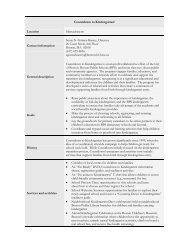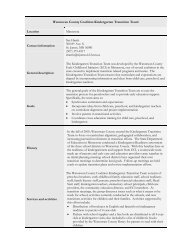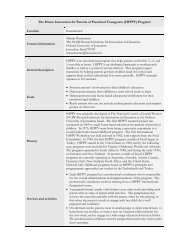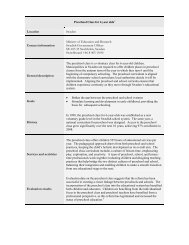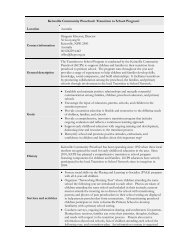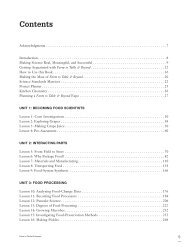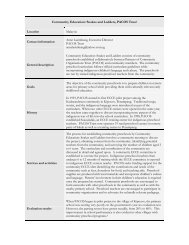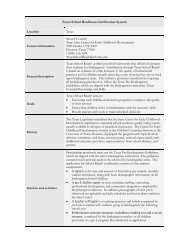Proceedings of the Fourth Annual Teachers College Educational ...
Proceedings of the Fourth Annual Teachers College Educational ...
Proceedings of the Fourth Annual Teachers College Educational ...
You also want an ePaper? Increase the reach of your titles
YUMPU automatically turns print PDFs into web optimized ePapers that Google loves.
The overall purpose <strong>of</strong> <strong>the</strong> dissertation research is to help identify how, if at all, constructivistoriented<br />
teachers’ beliefs on qualitative formative assessment are put into practice when using an<br />
instructional design that features student screencast production on mobile devices. This study will<br />
not reveal generalizable <strong>the</strong>ories, but ra<strong>the</strong>r will generate patterns and <strong>the</strong>mes that can be<br />
considered as more people and institutions look to mobile screencasting and its place in<br />
education. It also explores a methodological framework for examining emerging technologies and<br />
teaching practices (Collins 1990; Brown, 1992). Finally, <strong>the</strong> research helps fill a gap in existing<br />
qualitative and quantitative literature on screencasting, mobile technology, and qualitative<br />
formative assessment. The following research question guides this research: How are selfidentified<br />
constructivist teachers' beliefs on formative assessment put into practice in <strong>the</strong>ir<br />
instruction when integrating mobile screencasting technology in <strong>the</strong>ir teaching?<br />
Study Design<br />
The research is framed ontologically in relativism and social constructivism (Dewey, 2001;<br />
Goodman, 1984; Guba & Lincoln, 1994; Creswell, 2007). The reality <strong>of</strong> what I explore and<br />
uncover is only real within <strong>the</strong> context in which <strong>the</strong> research takes place. Epistemologically, <strong>the</strong><br />
knowledge that is explored and uncovered is tied directly to my own ontological perspective.<br />
Thus, it is extremely important to paint as complete a picture as possible in this research in order<br />
to address <strong>the</strong> questions. The adults with whom I will work must have some inherent beliefs <strong>of</strong><br />
constructivist learning. It will be impossible for me to address my questions if <strong>the</strong> people whom I<br />
reach out to for this study do not value qualitative formative assessment and <strong>the</strong> process <strong>of</strong><br />
learning, but ra<strong>the</strong>r only focus on what has been learned.<br />
I describe <strong>the</strong> methodology as design-based participatory case study research. I have chosen<br />
design-based methodology because it is an approach that originated in educational research and<br />
because it recognizes <strong>the</strong> importance and influence <strong>of</strong> context, including elements <strong>of</strong> <strong>the</strong> research<br />
design, on <strong>the</strong> data that is ga<strong>the</strong>red (Collins, 1990; Brown, 1992; Barab & Squire, 2004). There<br />
will be three independent cases observed with several weeks, if not months, between cases.<br />
During each case, interviews, observations, and archival data will be collected. At <strong>the</strong> conclusion<br />
<strong>of</strong> each case, revisions to not only <strong>the</strong> instruments but also <strong>the</strong> research questions will take place.<br />
Figure 1. Research design.<br />
References<br />
Anthis, K. (2011). Is It <strong>the</strong> Clicker, or Is It <strong>the</strong> Question? Untangling <strong>the</strong> Effects <strong>of</strong><br />
Student Response System Use. Teaching <strong>of</strong> Psychology, 38(3), 189-193.<br />
57



